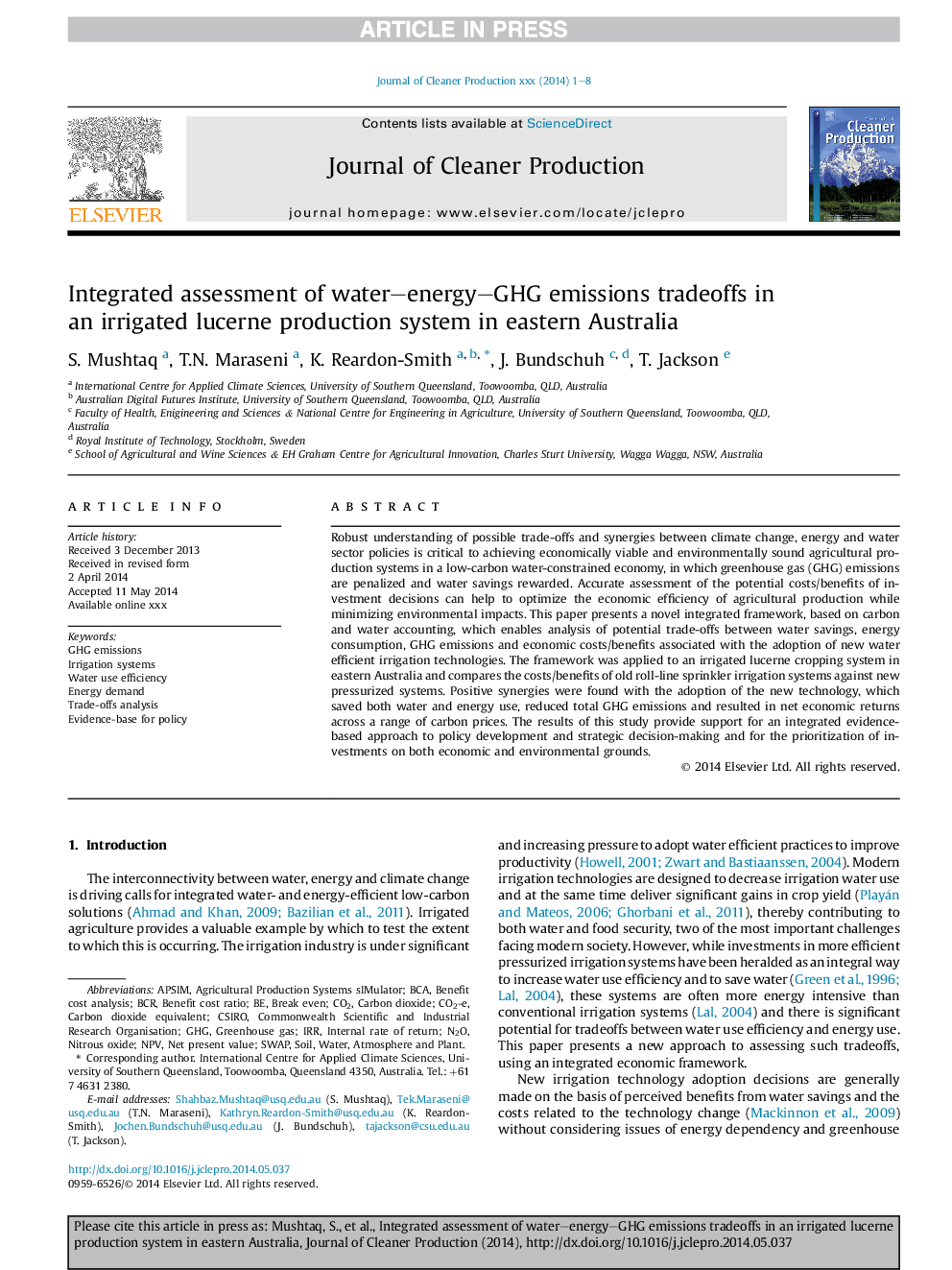| Article ID | Journal | Published Year | Pages | File Type |
|---|---|---|---|---|
| 8103583 | Journal of Cleaner Production | 2015 | 8 Pages |
Abstract
Robust understanding of possible trade-offs and synergies between climate change, energy and water sector policies is critical to achieving economically viable and environmentally sound agricultural production systems in a low-carbon water-constrained economy, in which greenhouse gas (GHG) emissions are penalized and water savings rewarded. Accurate assessment of the potential costs/benefits of investment decisions can help to optimize the economic efficiency of agricultural production while minimizing environmental impacts. This paper presents a novel integrated framework, based on carbon and water accounting, which enables analysis of potential trade-offs between water savings, energy consumption, GHG emissions and economic costs/benefits associated with the adoption of new water efficient irrigation technologies. The framework was applied to an irrigated lucerne cropping system in eastern Australia and compares the costs/benefits of old roll-line sprinkler irrigation systems against new pressurized systems. Positive synergies were found with the adoption of the new technology, which saved both water and energy use, reduced total GHG emissions and resulted in net economic returns across a range of carbon prices. The results of this study provide support for an integrated evidence-based approach to policy development and strategic decision-making and for the prioritization of investments on both economic and environmental grounds.
Keywords
APSIMCO2-eagricultural production systems simulatorSWAPIRRBCACSIROBCRGHGN2Onet present valueGHG emissionsNitrous oxideWater use efficiencyBenefit cost analysisEnergy demandCarbon dioxideCommonwealth Scientific and Industrial Research OrganisationIrrigation systemsCarbon dioxide equivalentNPV یا negative predictive valueInternal rate of returnBenefit Cost RatioCO2Greenhouse gas
Related Topics
Physical Sciences and Engineering
Energy
Renewable Energy, Sustainability and the Environment
Authors
S. Mushtaq, T.N. Maraseni, K. Reardon-Smith, J. Bundschuh, T. Jackson,
